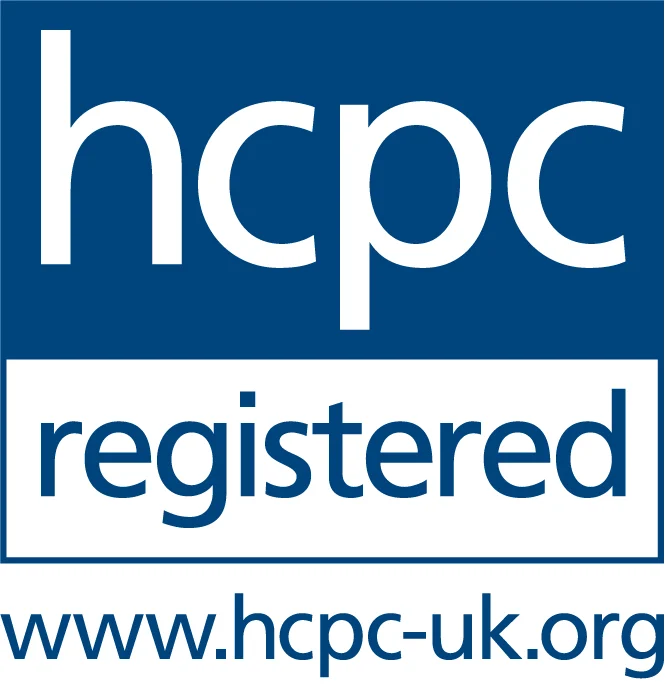What is Adult ADHD (Attention Deficit Hyperactivity Disorder)? How common is Adult ADHD? What causes Adult ADHD? What are the symptoms of Adult ADHD? How is Adult ADHD diagnosed? Related conditions and treatment.
Read PostWhat is Anxiety?
We all react to stressful situations differently. Most people feel stressed at some point in their lives. It is usually in response to situations that you are finding stressful (such as taking a test) and this stress normally goes away when then situation or stressor has passed. It is a normal emotional response and biological reaction to life’s ups and downs.
Anxiety is different from stress, as people with an Anxiety Disorder frequently have intense, excessive and persistent worry about everyday situations. Feelings of anxiety can be present without any apparent life stressors.
Anxiety Disorders affect around 7% of people in the UK at any one time. In England, women are twice as likely to be diagnosed with anxiety disorders as men. If you have an anxiety disorder, it often means that your symptoms are chronic (long lasting or recurring) and interrupt your ability to engage in activities of daily life.
What are the symptoms of Anxiety?
Anxiety can trigger a range of physical and mental symptoms, which can lead to changes in your behaviour, and the way you act in certain situations or react to different events. Record which ones you experience below when anxiety is present in your life.
Physical Symptoms
- Faster, irregular or more noticeable heartbeat
- Feeling light headed or dizzy
- Headaches and/or stomach aches
- Rapid breathing or shortness of breath
- Chest pains
- Loss of appetite
- Feeling hot
- Shaking
- Muscle tension
Mental Symptoms:
- Feeling tense or nervous
- Being unable to relax
- Excessive fear or worrying about the past or the future
- Feeling tearful
- Difficulties with falling / staying asleep / waking early
- Difficulty concentrating or racing thoughts
- Fear of the worst happening or irrational fear of danger
- Intrusive traumatic memories
- Obsessive thoughts
Changes in Behaviour:
- Irritable, restless, agitated, angry or tearful
- Unhealthy acts to soothe (alcohol, drugs, smoking)
- Unable to enjoy your leisure time
- Difficulty looking after yourself
- Struggling to make or maintain relationships
- Difficulty with trying new things
- Avoiding people / places / situations
- Compulsive behaviour, e.g. constantly checking things
- Argumentative and difficult to reason with
What are the different types of Anxiety Disorders?
Anxiety can affect people in a range of different ways and therefore there are several different types of Anxiety Disorders. These are some of the most common ones:
Generalised Anxiety Disorder (GAD)
If you have Generalised Anxiety Disorder (GAD), it is likely that you will experience excessive worry that’s difficult to control. This worry often takes the form of rumination, or spending time excessively thinking or mulling over different events in the future — how they may play out and how you may deal with them. It’s not uncommon to have symptoms and not be able to explain why. For people with GAD, symptoms like those listed above are present most days and for at least the past 6 months.
Social Anxiety Disorder / Social Phobia
Social Anxiety Disorder, also referred to as Social Phobia, is a fear of being embarrassed, humiliated, or criticised in a public setting like school or work. You may have trouble talking to people or being in a large group. It’s not uncommon to avoid the places and situations that trigger this phobia.
Panic Disorder
It is common for people who have an Anxiety Disorder to also experience Panic Disorder. Panic Disorder involves repeated episodes of sudden feelings of intense anxiety, fear or terror that can reach a peak within minutes. These are called Panic Attacks. These feelings of anxiety and panic interfere with daily activities, are difficult to control, often happen without any warning, and are out of proportion to the actual danger and can last a long time. Panic attacks can result in physical symptoms like chest pain, shortness of breath, sweating, shaking, and dizziness. They also may involve feeling dissociated from reality or having a sense of impending doom. You may avoid places or situations to prevent these feelings. Symptoms may start during childhood or the teen years and continue into adulthood, if not treated. In general, an attack lasts less than 20 minutes.
Phobias
Phobias and Specific Phobias involve an irrational, overwhelming, and excessive fear of a place, situation, or object. Some of the more common phobias include:
- acrophobia (fear of heights)
- claustrophobia (fear of tight spaces)
- aerophobia (fear of flying)
- hemophobia (fear of blood)
- trypanophobia (fear of needles)
- hydrophobia (fear of water)
Separation Anxiety Disorder
Separation Anxiety Disorder is most commonly diagnosed in children and young people, especially young children. However, adults can also experience this type of anxiety if they have extreme fear about something bad happening to a person in their life. In children, the symptoms of fear, panic, worry, and anxiety surface when they’re separated from a parent or loved one. Adults may have extreme fear and worry about something tragic happening to a family member or loved one, even when they’re together.
Agoraphobia
Agoraphobia often occurs in response to panic attacks. If you have agoraphobia, you feel extreme fear or anxiety about having a panic attack or fear that something bad may happen in a specific place — usually outside the home. You may avoid that place, usually confining yourself to the home, in order to stave off the possibility of something bad happening where you can’t access support or help. You’ll often avoid feared places and situations at all costs.
Other types of Anxiety:
There are also other, less common types of Anxiety, including:
- selective mutism
- substance- or medication-induced anxiety disorder
- anxiety disorder due to another medical condition
The way that we diagnose Anxiety has changed recently, and the two mental health problems of Obsessive-Compulsion and Related Disorders (OCRDs), which includes Obsessive-Compulsive Disorder (OCD), and Adjustment Disorders, such as Post-Traumatic Stress Disorder (PTSD) are now seen as separate mental health problems in their own right.
If you are experiencing any of the Anxiety Disorders, it is important to seek help promptly as there are evidence-based and effective treatments. Contact us to arrange a consultation.
Disclaimer: All blog content is for information only and is not mental health treatment.
Other Posts
Why isn't 'Asperger's Syndrome' a diagnosis anymore? What do we call 'Aspergers' Syndrome' now? What if I had a diagnosis of Asperger's Syndrome before 2013?
Read PostWhat is childhood ADHD? How common is childhood ADHD? What causes childhood ADHD? What are the symptoms of childhood ADHD? How is childhood ADHD diagnosed? Related conditions. How is ADHD treated?
Read PostWhat is Autism Spectrum Disorder (ASD)? What is a neurodiversity? How do I know if I need an assessment? What's involved in an assessment? How can a diagnosis help?
Read PostWhat is Cognitive Behaviour Therapy (CBT)? How does CBT work? How do I know if CBT is right for me? What happens during CBT?
Read PostWhat is Acceptance and Commitment Therapy (ACT)? How are CBT and ACT different from each other? What happens in ACT?
Read PostWhat is STAIR Therapy? What are the goals of STAIR?
Read PostWhat is Dental Anxiety, or Dentophobia? What are the symptoms? What are the causes? What is the overlap between Dentophobia and Blood-Injury-Injection Phobia? What is the treatment?
Read Post




